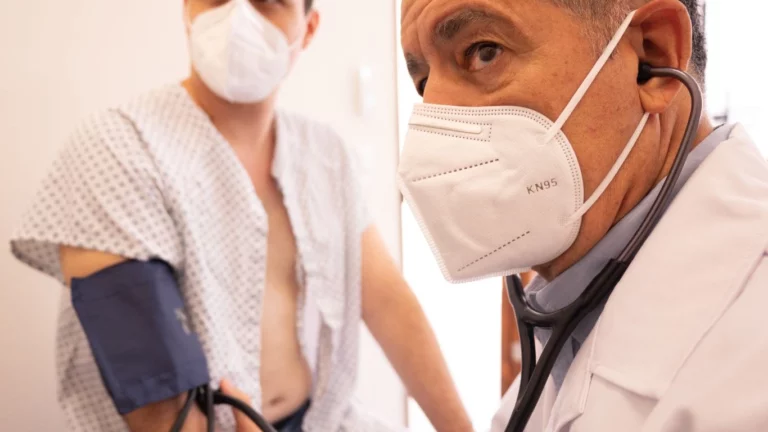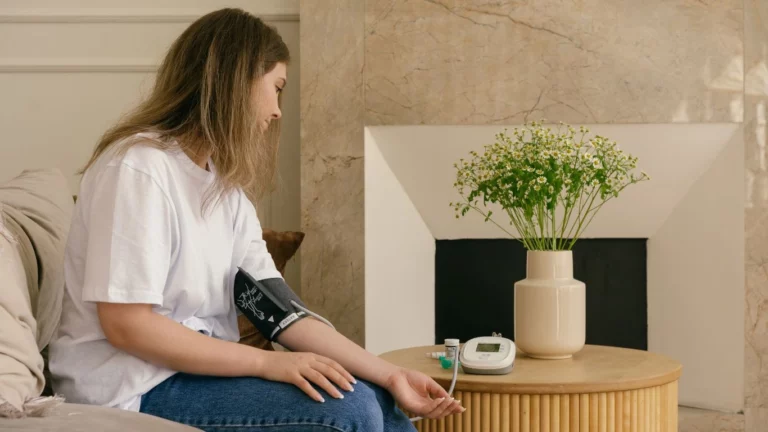Stay Healthy: Managing High BP During Holidays Can Be Simple
The holiday season often brings joy, connection, and celebration. But for many, it also brings a fair amount of stress, dietary changes, and disrupted routines. For individuals managing high blood pressure—also known as hypertension—these shifts can be especially challenging.
Staying on top of your health during this time isn’t about strict rules or fear. It’s about gentle awareness and making space for balance amid the festivities. High blood pressure may not always show clear symptoms, but the consequences over time can be serious if left unmanaged. The good news is, small, steady choices make a meaningful difference.
Signs and Symptoms
High blood pressure is often called a “silent condition” because it typically doesn’t cause obvious symptoms. Still, some people may notice signs, especially when their blood pressure reaches dangerously high levels.
- Headaches, particularly in the morning
- Dizziness or lightheadedness
- Blurred vision
- Chest discomfort
- Shortness of breath
- Feeling flushed or warm
If you’re experiencing any of these more frequently during the holidays, it may be a sign that stress or lifestyle changes are affecting your blood pressure.
Causes
Several holiday-related factors can influence blood pressure levels. The key is not to eliminate every indulgence, but to understand what might be affecting your numbers and make thoughtful adjustments.
- Dietary Changes: Salty, processed, and rich foods are more common during holidays, all of which can raise blood pressure.
- Alcohol Intake: Celebrations often include more drinking than usual, which can contribute to hypertension.
- Stress: Planning events, navigating family dynamics, and financial concerns can all increase emotional stress.
- Sleep Disruption: Travel, parties, and irregular schedules can interfere with restorative sleep, which plays a role in blood pressure regulation.
- Missed Medications: With busy schedules, it’s easy to forget to take medications or refill prescriptions on time.
- Reduced Physical Activity: Colder weather and tighter schedules can lead to less movement and exercise.
When to Get Help
Sometimes, a holiday-related spike in blood pressure may not be serious. But there are clear signs that should never be ignored. If you or someone you love experiences any of the following, seek immediate medical care:
- Severe chest pain or pressure
- Sudden shortness of breath
- Confusion or difficulty speaking
- Loss of vision or extreme headache
- Loss of consciousness
These could indicate a hypertensive crisis or other emergency. It’s always better to be cautious. If you’re unsure, contact a healthcare provider or local emergency services.
Treatment
Managing high blood pressure doesn’t mean giving up joy. It means finding a rhythm that supports your health, even during the busiest and most celebratory times of the year. There are a few key areas to focus on.
1. Consistency with Medication
If you’ve been prescribed blood pressure medication, taking it as directed is essential. During holidays, set alarms or reminders on your phone. Carry a small pill case when traveling to avoid missed doses.
2. Mindful Eating
You don’t need to avoid every special dish, but being mindful of salt and portion sizes can help. Consider:
- Choosing fresh or homemade options over canned or processed foods
- Balancing heavier meals with lighter ones
- Staying hydrated with water between alcoholic or sugary drinks
3. Moving Your Body
Even light activity can help regulate blood pressure. A short walk after meals, dancing during a celebration, or gentle stretching in the morning can make a difference.
4. Managing Stress
It’s natural to feel overwhelmed sometimes. Carving out quiet moments for yourself—even just five minutes of deep breathing—can help lower stress hormones that contribute to high blood pressure.
- Practice deep breathing or meditation daily
- Take breaks from social gatherings if needed
- Spend time in nature, even if it’s just a walk around the block
5. Keeping Routine Where Possible
Maintaining parts of your regular routine—waking up at a consistent time, keeping some exercise habits, and eating meals on schedule—can provide stability during an otherwise unpredictable season.
Emotional Wellness Matters
High blood pressure management isn’t just about numbers. It’s about how you feel—physically and emotionally. The holidays can stir up old memories, family pressures, or even grief. All of these emotions are valid and real.
Practicing self-kindness can ease emotional tension, which in turn benefits your physical health. You’re allowed to set boundaries, say no to gatherings that feel overwhelming, or simply rest when needed.
Supporting a Loved One with Hypertension
If someone in your life is living with high blood pressure, your support can make a big difference. Gentle encouragement and small acts of care—like offering a healthy food option or going for a walk together—can be powerful.
- Respect their routine and medication schedule
- Help create a calm environment when possible
- Listen without judgment if they need to vent or share concerns
Sometimes, just knowing they’re not alone in managing their health can ease anxiety and help them stay on track.
Long-Term Habits Beyond the Holidays
The end of the holiday season offers a chance to reflect. What felt good? What caused strain? These insights can shape habits in the new year, offering a foundation for sustainable blood pressure management.
Small changes over time—like preparing low-sodium meals at home, incorporating daily movement, or checking in with your doctor regularly—build resilience. Studies have shown that even modest reductions in blood pressure lower the risk of heart disease and stroke over time.
Final Thoughts
The holidays are meant to be a time of joy and connection. If you live with high blood pressure, you deserve to enjoy that too—without fear or guilt. Managing your health is not about being perfect; it’s about paying attention, making thoughtful choices, and being kind to yourself along the way.
As always, if you’re unsure about your symptoms or your care plan, don’t hesitate to talk to a healthcare provider. Your well-being is worth the effort, during the holidays and beyond.

Dr. Gwenna Aazee is a board-certified Internal Medicine Physician with a special focus on hypertension management, chronic disease prevention, and patient education. With years of experience in both clinical practice and medical writing, she’s passionate about turning evidence-based medicine into accessible, actionable advice. Through her work at Healthusias.com, Dr. Aazee empowers readers to take charge of their health with confidence and clarity. Off the clock, she enjoys deep dives into nutrition research, long walks with her rescue pup, and simplifying medical jargon one article at a time.







